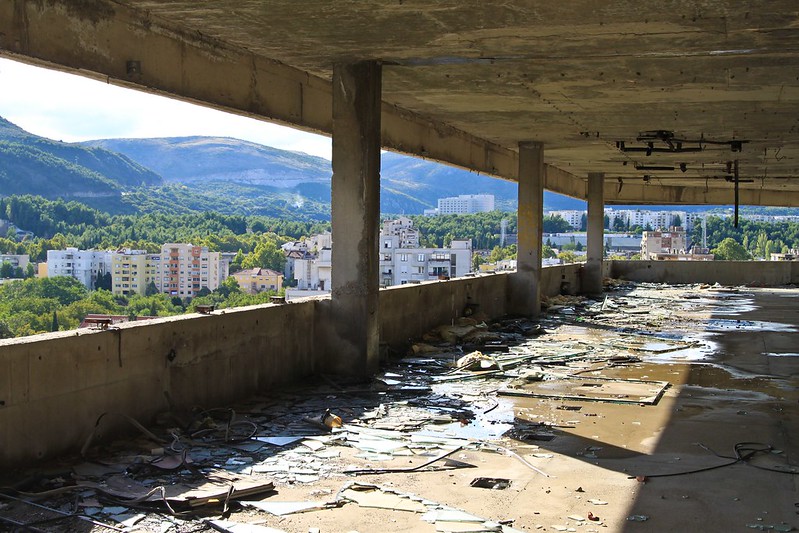4.3.3 Where Islam and Nationalism Collide

War damage in abandoned bank in Mostar, Bosnia. Clark and Kim Kays, 2010.
While recognizing the validity of national, racial, tribal, ethnic, and cultural differences, Islam views them as signs of God’s creative power, not as the foundation for the creation of mutually destructive political agendas (Renovatio, 2017).
Islamic scriptural refutations of “fanatical tribalism” can be applied to modern day nationalism, argues Imam Zaid Shakir, co-founder of the Zaytuna College in California, USA.
Read: Where Islam and Nationalism Collide // Renovatio
Guiding Questions:
- How does Imam Shakir define the nation and nationalism?
- What are the elements of nationalism that Islam opposes, according to the author?
- How does the author argue Islam can help us overcome the “contemporary global order” of nationalism? What historical example does he use?
- How has nationalism been mobilized in your country or region? Have people used religion as a source of authority to justify nationalism?
Thumbnail: Bombed-out office building, Mostar, Bosnia. Photo Credit: Clark and Kim Kays, 2010. CC BY-NC-ND 2.0.


